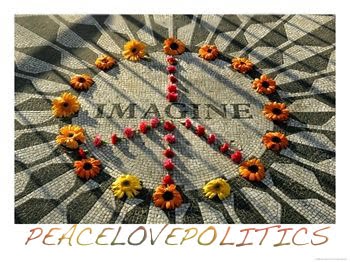Tuesday, September 29, 2009
Saturday, September 26, 2009
Jumpstart your Career in Journalism: Become a Prostitute...Er... Hero?
Visit msnbc.com for Breaking News, World News, and News about the Economy
Sunday, September 20, 2009
Not a Good Week For FOX News

Rick Sanchez sums up his point by saying that indeed CNN did cover the event but they did not promote the event like FOX did. And as if FOX was trying to back this claim up themselves, a video surfaced on the web that caught a FOX producer rallying the crowds behind their cameras. Look for the girl in the green on her phone make hand gestures to the crowd...
In order to report unbiased news coverage, the journalist’s job is not to create the news but to simply document it. If the crowd was not that enthusiastic, then it should have been covered that way. Trying to alter the scene in a manner that portrays a different mood to the viewer than was actually the reality that day is not the job of the journalist. In fact, in my book that would be inaccurate reporting. This is the kind of thing that happens for tapings of live television reality shows and game shows when the producer tries to rile up the crowd right before they go back on air from a commercial break. If FOX wants to do this then they cannot call themselves a news organization…they might as well also hold up cue cards that say “applaud” and “louder”. Would it be any less appropriate for a producer to arrive at the scene of a shooting or murder and tell the onlookers that they needed to be crying more or appear more somber? It’s simply not appropriate for anyone involved in honest journalism to play the puppeteer of the news and try to create false emotions for the purpose of proving a point (especially a highly controversial political point), or to try and create more dramatic and compelling video
FOX you screwed up big time. CNN you're not great either so don't get too cocky.
Tuesday, September 15, 2009
Newsom Gets the Thumbs Up from Bill
Saturday, September 12, 2009
Al Gore and the future of Public Intellectuals like him...
When you hear the name Al Gore, you are more inclined to think of a man making power point presentations of polar bears on melting ice caps then of a politician sitting in legislative meetings. After two Vice Presidential terms and his own closely contested, historically controversial Presidential race, one could argue that Gore will be best remembered for bringing the issue of climate change to the people of America. His documentary film, An Inconvenient Truth, made the term “global warming” a household phrase. Though some still dispute the scientific legitimacy of climate change and the manner in which Gore presented the concept in his film, no one can argue that Gore ushered in an era of environmentalism by initiating the most serious environmental policy debate to date. As with any political issue, Gore’s social criticism of America’s lack of environmental concern roused strong support and strong opposition, but more importantly it initiated conversation...the kind of conversation most easily catalyzed by an effective public intellectual.
As Jean Bethke Elshtain and Stephen Mack both point out in their commentaries on the public intellectual, its purpose above all else is criticism. Gore’s environmental critique of society in An Inconvenient Truth painted a bleak picture in which figuratively no one’s hands were left unstained with the blood of careless actions.
Future generations may well have occasion to ask themselves, "What were our parents thinking? Why didn't they wake up when they had a chance?" We have to hear that question from them, now….And that is what is at stake, our ability to live on planet Earth, to have a future as a civilization. I believe this is a moral issue, it is your time to seize this issue, it is our time to rise again to secure our future.
This passionate call to arms may not have ignited a war or caused one to end, but it did start a movement that was arguably significant and powerful enough to have altered our course in history. Three years later, Gore has yet to give up. In his own blog, Al’s Journal, he posts almost daily with continued hopes of getting out his message of climate change to anyone who’s willing to hear it, and offering those who are listening advice on how to best affect the environmental political agenda. In a recent post, he even acknowledges the fact that “building a grass roots movement is difficult,” but also assures his readers that, “Our movement has been building towards this moment. Together we will not fail.”
To make the supposition that the “public intellectual” as a collective group is in its decline, in my mind also suggests that we as a society no longer value intelligent conversation. There are no doubt a billion negations to both of those assertions happening right now as you read this statement. The blogosphere as well as other new forms of digital media have opened up the floodgates for academics and minimum-wage earners alike to become a member of the public intellectual with just the click of a button. As one intellectual put it, “Our notions of the public intellectual need to focus less on who or what a public intellectual is—and by extension, the qualifications for getting and keeping the title. Instead, we need to be more concerned with the work public intellectuals must do, irrespective of who happens to be doing it.” (Stephen Mack, The “Decline” of Public Intellectuals?) In many ways the Internet is pushing this statement closer to a reality each day. If a popular blog begins to stir up political and social debate, does it matter if the author is Al Gore or a college student? In my book, if either of the two can start intelligent debate within the public, then either can be an effectual public intellectual.

